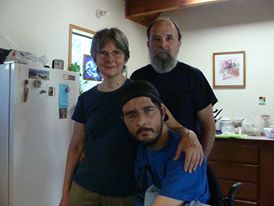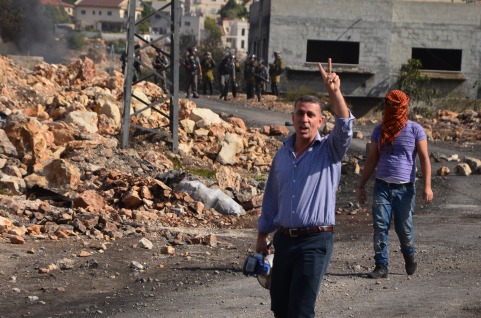Author: ISM Media
-
Trial of American activist maimed by Israeli military to begin
5th December 2014 | International Solidarity Movement| Occupied Palestine Tristan Anderson’s civil trial against the Israeli Military will begin on Sunday 7 December at 10:00, Jerusalem District Court. Tristan Anderson was critically injured after being shot in the head with a high velocity tear gas grenade by Israeli Border Police following a protest against the construction…
-
Israeli military court sentences Murad Eshtewi to 10 months in prison and a 10,000 NIS fine for participating in Kufr Qaddum protests
4th December 2014 | Popular Struggle Coordination Committee | Kafr Qaddum, Occupied Palestine Salem military court has sentenced activist Murad Eshtewi, from Kufr Qaddum village, to 9 and a half months of prison, with an additional 10,000 shekel fine. Israeli forces arrested Eshtewi on April 29th, 2014 in the middle of the night accusing him of participating…
-
VIDEO: Non-violent protest met with tear gas and stun grenades
29th November 2014 | International Solidarity Movement, Khalil team | Hebron, Occupied Palestine Today in al-Khalil (Hebron) families gathered to stage a peaceful demonstration protesting the continuing closure of the Shuhada checkpoint. The rally consisted of approximately 50 Palestinians, of all ages. The protesters met outside of the closed checkpoint at 1 pm, armed with nothing…



